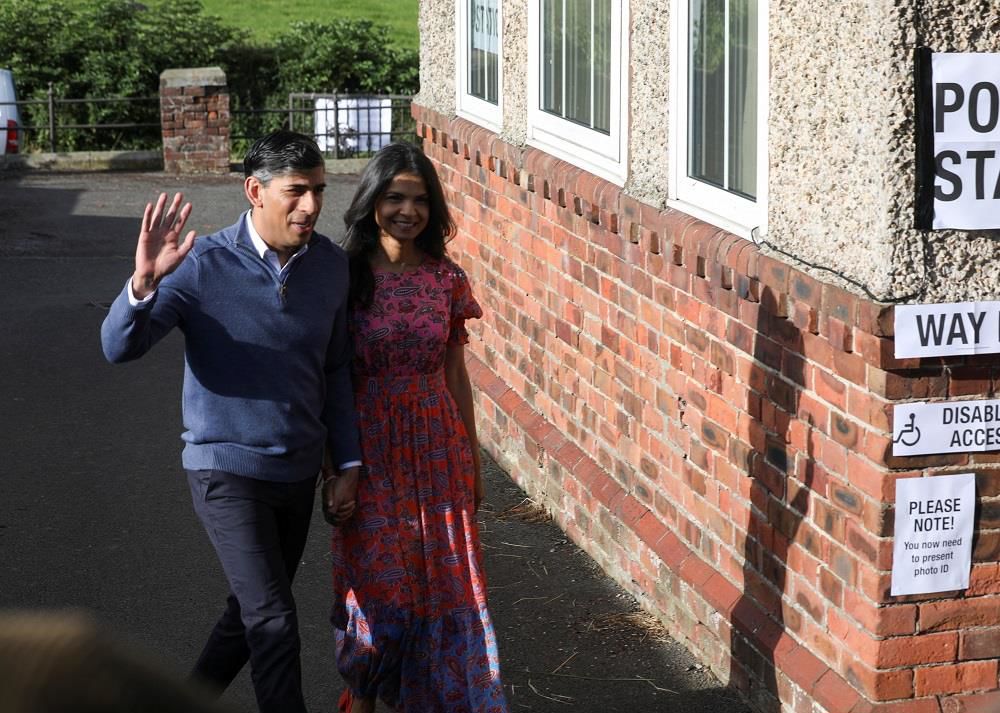As millions vote in UK polls, future of PM Rishi Sunak and his party hangs in balance
London, July 4
The future of Rishi Sunak as Britain’s first Prime Minister of Indian origin and the leader of the Conservative Party – fighting anti-incumbency of 14 years – hangs in the balance as millions cast their ballots in a historic general election on Thursday.
The British Indian leader and the man who wants his job – Labour leader Keir Starmer — were among the early voters from an estimated 46 million registered voters as around 40,000 polling booths opened across the country at 7 am local time.
Sunak and his wife Akshata Murty walked hand-in-hand to their local polling booth on a sunny day in his constituency of Richmond and Northallerton in Yorkshire, northern England.
A little later, Starmer and wife Victoria were at their polling station in Camden, north London, sporting Labour red colours.
“Today, Britain can begin a new chapter,” Starmer told voters in a statement.
“We cannot afford five more years under the Conservatives. But change will only happen if you vote Labour,” he said.
Sunak, meanwhile, took to social media to drive home his message: “Polls are open. It’s time to stop the Labour supermajority that would mean higher taxes for the rest of your life.”
Sunak, 44, is up against voter angst towards the incumbent Tories after 14 years in power and has had to contend with trailing far behind 61-year-old Keir Starmer-led Labour Party throughout the six-week campaign.
Earlier, both leaders wrapped up their six-week-long campaign with contrasting messages – Sunak urging voters not to hand “tax-raising” Labour a “supermajority” and Starmer playing down the prospect of a landslide win for fear of a low turnout impacting the final outcome.
Candidates are being fielded for 650 constituencies across England, Scotland, Wales, and Northern Ireland, with 326 required for a majority in the first past the post system.
Besides the two main parties, voters will be choosing from a list of candidates representing the Liberal Democrats, Green Party, Scottish National Party (SNP), SDLP, Democratic Unionist Party (DUP), Sinn Fien, Plaid Cymru, the anti-immigration Reform Party and several contesting as Independent.
Polling experts have forecast a low turnout, which stood at 67 per cent in the last general election in December 2019 when Johnson won a solid majority on his get Brexit done message.









